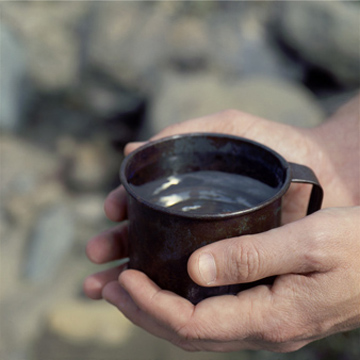
To listen to this reflection as a podcast, click here.
In AD 165, during the reign of Marcus Aurelius, a virus brought the Roman Empire to its knees.
A deadly epidemic swept across the Mediterranean world. Historians guess that it was smallpox, making its first incursion into a population that had no immunity.
Whole cities and provinces were abandoned and fell into ruin. Roman troops carried the affliction into northern Europe, where they were fighting Germanic hordes. The battlefields were littered with soldiers from both sides who simply dropped in their tracks, even though they had suffered no wounds. Before the epidemic burned out 15 years later, somewhere between a quarter and a third of the population had been lost, including the emperor himself.
A century later, another disease – probably measles – once again devastated the Empire. As many as 5,000 people died in Rome every 24 hours. Alexandria in Egypt, the second largest city in the Western world, lost an incomprehensible two-thirds of its citizens.
As historian Rodney Stark points out in his book The Rise of Christianity, these epidemic waves packed more than just a demographic punch.
In the face of repeated crises, ancient paganism folded like a house of cards. Their priests had no spiritual explanations for what was happening. Nor could they provide assurances that the Roman gods cared a lick about human suffering. Nor did they have strong social connections that encouraged people to help each other.
Followers of Jesus had all three.
By the middle of the third century, even before the conversion of the emperor Constantine around AD 306, the Jesus Movement had established its credentials as a community of compassion. That was principally due not because of what the early Christians said, but because of what they did.
In the midst of chaos, confusion, and death, they stuck around.
When the first major epidemic struck Rome, the most famous physician of the ancient world, Galen, fled to the countryside to save his own life. A significant number of Christians stayed behind. Remembering Matthew 25:31-46 – where Jesus declares that when we care for “the least of these” who are sick, we are actually caring for him – they came alongside the afflicted and bedridden. The virus claimed many of their lives, too. But those who survived, and thus received the gift of immunity, were able to redouble their efforts as nurses and caregivers.
Many of the Empire’s pagan citizens experienced the epidemics as the end of the world – the end, at least, of everything they knew and loved, including their own lives. But for the Christians, death did not erase the meaning of life. Life was meaningful even when it came to an end. This idea was entirely unknown in the pagan world.
Emperor Julian the Apostate, who despised Christianity and attempted an Empire-wide pagan revival in AD 362, admitted that Christian compassion was making his project difficult: “The impious Galileans support not only their own poor, but ours as well. Everyone can see our people lack aid from us.”
It was a revolutionary idea to care for someone who was in “the other camp,” not in one’s own family, tribe, or ethnicity. No pagan teacher had ever suggested such a thing.
Did it matter that Christians took care of the sick? Stark points out that the odds of survival immediately go up whenever someone who cannot care for himself is provided the basics of food and water. Jesus also had something to say about that subject: “And if you give even a cup of cold water to one of the least of my followers, you will surely be rewarded” (Matthew 10:42).
Ministering to plague-afflicted strangers won a hearing for the Good News.
The followers of Jesus were saying, even if they never put it into words, “I may not know who you are, but I’m willing to die alongside you. That’s because of the love I have received from the Savior who died for me.”
It’s no surprise, then, that a great many people became a lot more interested in finding out what kind of God could inspire such kindness.
And it’s no surprise that our own acts of compassion are having the very same effect on other people to this day.
